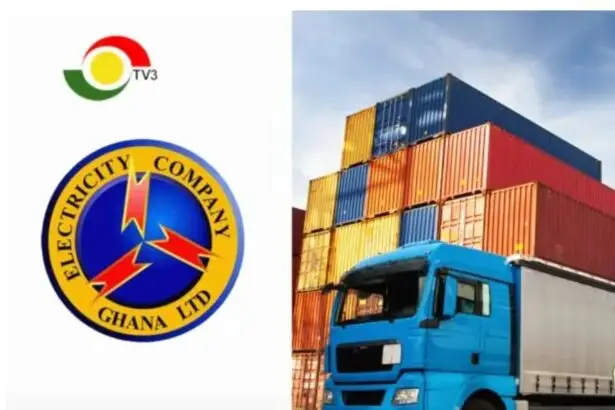Kwaku Azar writes: ECG Container & Procurement Findings Without Tears
Top ECG officials wrote letters over the years trying to get permission to bypass standard procurement rules.
- Advertisement -
1. Negligence Cost Us Big!
ECG left containers at the port and racked up a huge avoidable bill of over ₵909 million – all because of poor management, not lack of money as claimed.
2. Too Much Buying, No Planning
The ECG team bought way more items than needed. Things got worse after they merged the procurement department with estates management in 2023.
- Advertisement -
3. Admitted by the Boss Himself
The Director in charge admitted that most of the containers stuck at the port were bought while he was in charge.
- Advertisement -
4. Blamed on “Pressure from Above”
The same Director said ECG overbought due to pressure from above.
5. Contracts Handpicked Without Fair Bidding
He also said the former Managing Director gave contracts to selected suppliers without allowing fair competition.
6. Containers Deliberately Held Up?
It seems some containers were purposely left at the port just to give clearing contracts worth ₵159 million to private companies—despite ECG having its own capable clearing unit.
7. What’s in the Containers?
Items like meters, poles, transformers, and cables—vital to power supply—were stuck at the port!
8. Big Contract Given to Wrong Company
A clearing contract of ₵127 million was given to a company not even licensed to do that job.
9. Over 1,300 Containers Missing
ECG couldn’t account for 1,346 containers worth almost USD 489 million. Some had expensive equipment like transformers.
10. They Claimed No Money, But Paid GHS 30 Million
While claiming they had no funds to clear the containers, ECG paid ₵30 million upfront to one clearing agent.
11. Fraud Alert: 1 Container Missing, Millions Demanded
A company called Dawards Bond cleared 47 containers illegally, delivered only 46, but is demanding ₵5.29 million from ECG.
12. Tax Evasion Too!
By not following the proper process, Dawards Bond avoided paying about ₵4.8 million in taxes.
Procurement Breaches – What Went Wrong?
1. ECG Is State-Owned and Must Follow the Law
Even though ECG is a limited liability company, it’s fully owned by the government and must follow public financial and procurement laws.
2. ECG Broke Procurement Laws
Despite being denied an exemption, ECG still ignored procurement laws and awarded contracts without proper approvals.
3. Used Internal Funds as an Excuse
ECG claims the rules don’t apply when they use their own income—but the law clearly says otherwise.
4. No Evidence of Lawful Procurement
ECG couldn’t show proof that they follow the rules even when funded by the government.
- Advertisement -
5. Repeated Attempts to Bypass Procurement Laws
Top ECG officials wrote letters over the years trying to get permission to bypass standard procurement rules.
6. Attorney General Gave Advice—but Not to ECG
The AG gave advice to the Ministry of Finance, not ECG, suggesting ECG could be exempt—but ECG never got official exemption from the required authority.
7. Ignored the Proper Authority
ECG never applied to the official Procurement Authority Board, the only body with the power to approve exemptions.
8. Still No Evidence of Compliance
Even when claiming to follow the law with government funds, ECG provided no proof.
9. Single-Source Contracts Misused
The law allows single-source contracts only under strict conditions—but ECG used this route without justification.
10. No Public Notice, No Fair Chance
Contracts were often awarded without public notice, denying other suppliers the chance to bid.
11. Non-Competitive Contracts Everywhere
Most ECG contracts bypassed competitive bidding, violating the procurement laws.
12. They Ignored Their Own Plan
Worst of all, ECG didn’t stick to their approved procurement plan or budget.
13. They over-procured
Procurements exceeded budget by 790% in 2023 and 487% in 2024. There is no evidence the Entity and tender Committee approved these excessive procurements.
14. The over-procurement was consequential
In 2022 planned procurement was ₵225 million. Actual procurement was ₵1.1 billion
15. Notable Single-Source Contracts
Mint Logistics Ltd, Dawards Bond Ltd, and a digital payment platform services agreement with Hubtel Ltd.
16. Bulk Breaking
Most contracts were structured to fall within the MD’s financial approval threshold of $1 million.
17. Contracts are not subjected to contract administration and management.
What Do You Think? Should Those Responsible Be Held Accountable?
Or should we “fa ma name” (leave Mr. Order from above to the good man above)?
Da Yie!
- Advertisement -


